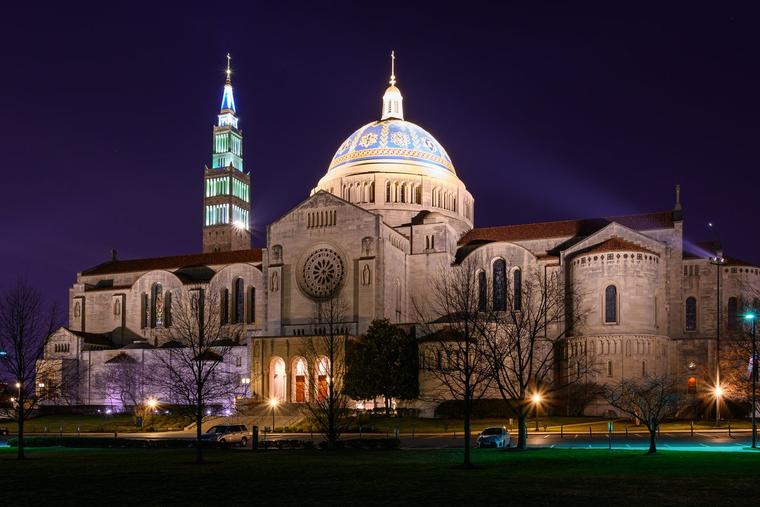By Rob Neal
This Fourth of July, the Chicago-born Cardinal Robert Prevost, now Pope Leo XIV, has given Catholics in the United States something we never dared to dream: a Supreme Pontiff from America. For the first time in our nation’s history, we can now add Catholic to the list of things that are as American as baseball, hot dogs and apple pie.
As I write this from The Catholic University of America, where “Deus et Patria” is etched in stone on our oldest building, I am struck by how prophetic those words now seem. God and country were in tension when Catholic University was founded in 1887, but we have always embraced this double identity of being fully Catholic and fully American.
Our students here at Catholic University cheered with overwhelming enthusiasm when the announcement came that our new pope was an American. When it was announced that he had chosen the name Leo, they broke out into spontaneous chants of “Leo, Leo, Leo!” — a moment that captured the electric connection between our new Pope and our founding papal patron. In our main academic building, the 12-foot statue of Leo XIII — once admired by President Theodore Roosevelt, himself a great admirer of that Pope — seemed to smile down upon us with new relevance.
The significance extends beyond symbolism. American Catholics have sometimes felt caught between two worlds — faithful to Rome but eager to be respected by this nation’s Protestant majority as “real Americans.” Pope Leo XIV bridges that divide naturally. His choice of name, honoring a Church leader who championed social justice, including both property rights and workers’ rights, signals his understanding that American Catholics need a Church that speaks to both their souls and their deep commitment to civic duty and the common good.
This is particularly meaningful for young American Catholics who have watched their peers drift from the Church. They now see that being Catholic doesn’t mean being foreign or out of touch with American ideals. Our Pope grew up watching baseball. He understands our neighborhoods and our struggles, and brings that perspective (as well as an enthusiasm for his beloved White Sox) to the chair of Peter.
But Catholics in the U.S. have also felt discomfort in the opposite direction. Leo XIII himself wrote a letter on the heresy of what was called “Americanism,” to which the bishops of the United States had to respond with assurances that the Church in the U.S. was faithful to the Church and her sacred teachings.
The echoes of President John F. Kennedy’s election in 1960 are unmistakable. To become president, Kennedy had to convince voters that he wouldn’t take orders directly from the Pope. In other words, he had to prove he was fully American. But the question remained: Are U.S. Catholics as Catholic as their European or South American counterparts? The election of Leo XIV is a resounding affirmation by the cardinals of the Catholic Church that, yes, the faith in the United States is fully alive, fully faithful and fully Catholic.
As we celebrate this Independence Day, we celebrate not just our nation’s freedom, but our full embrace of both God and Country. Pope Leo XIV has shown us that these identities don’t compete — they complement one another.
This Fourth of July, we light our sparklers and raise our flags with unprecedented joy, knowing that somewhere in the Vatican, the Holy Father might be thinking of home, thinking of Chicago, and waving an American flag.
